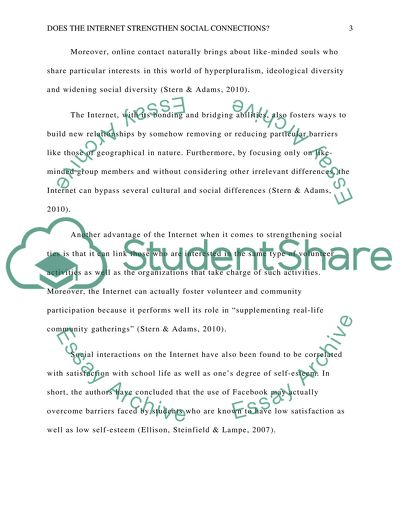Cite this document
(“Does the internet strengthen social connections Essay”, n.d.)
Does the internet strengthen social connections Essay. Retrieved from https://studentshare.org/anthropology/1631297-does-the-internet-strengthen-social-connections
Does the internet strengthen social connections Essay. Retrieved from https://studentshare.org/anthropology/1631297-does-the-internet-strengthen-social-connections
(Does the Internet Strengthen Social Connections Essay)
Does the Internet Strengthen Social Connections Essay. https://studentshare.org/anthropology/1631297-does-the-internet-strengthen-social-connections.
Does the Internet Strengthen Social Connections Essay. https://studentshare.org/anthropology/1631297-does-the-internet-strengthen-social-connections.
“Does the Internet Strengthen Social Connections Essay”, n.d. https://studentshare.org/anthropology/1631297-does-the-internet-strengthen-social-connections.


